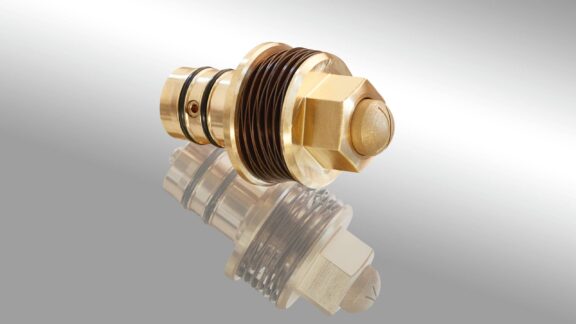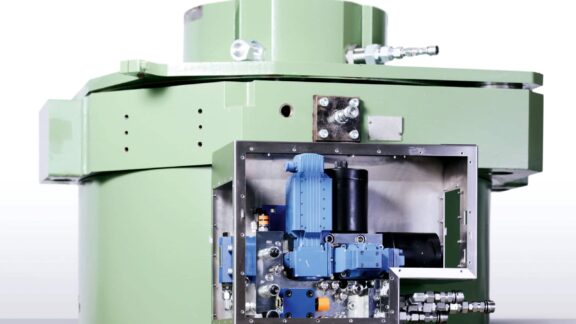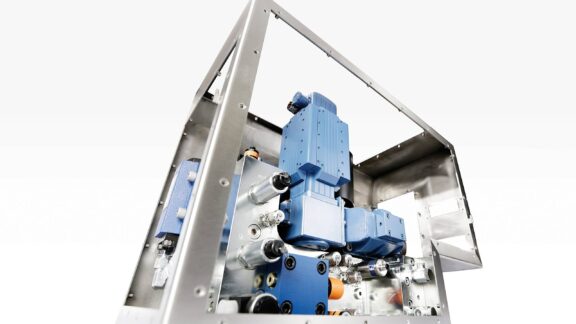This post is also available in: 简体中文 (Chinese (Simplified))
Demand for new steel grades and efforts to increase mill efficiency are driving advances in roll-gap lubrication. In cooperation with several industry partners, Primetals Technologies has recently developed Minimum Quantity Lubrication (MQL) – a considerably improved lubrication solution that contributes to enhanced strip surface cleanliness, reduced rolling forces, lower electrical energy rates, and a decreased specific oil consumption.
Optimized rolling processes and systems are necessary to maximize product quality, reduce operational costs and to extend the product mix to include new steel grades and thinner-gauge strip. Customized roll-gap lubrication and cooling solutions are also vital to achieve these targets. The lubricants must be optimized for all rolling applications and also have to fulfill the quality and quantity demands for a wide variety of steel grades. For these reasons, Primetals Technologies, Quaker Chemical Corporation, voestalpine Steel and Johannes Kepler University in Linz entered into an exclusive cooperation in early 2009 to pool their knowledge, experience and resources to acquire a better understanding of the complex tribological phenomena in the roll gap.
“Cooperation between rolling-mill suppliers, lubricant manufacturers and rolling-mill operators is an ideal way to develop oils and emulsions that meet all rolling requirements,” commented Peter Schellingerhout, Global R&D Manager at Quaker. “By pooling our forces and competencies, we can use our collective experience to develop specific market solutions.”
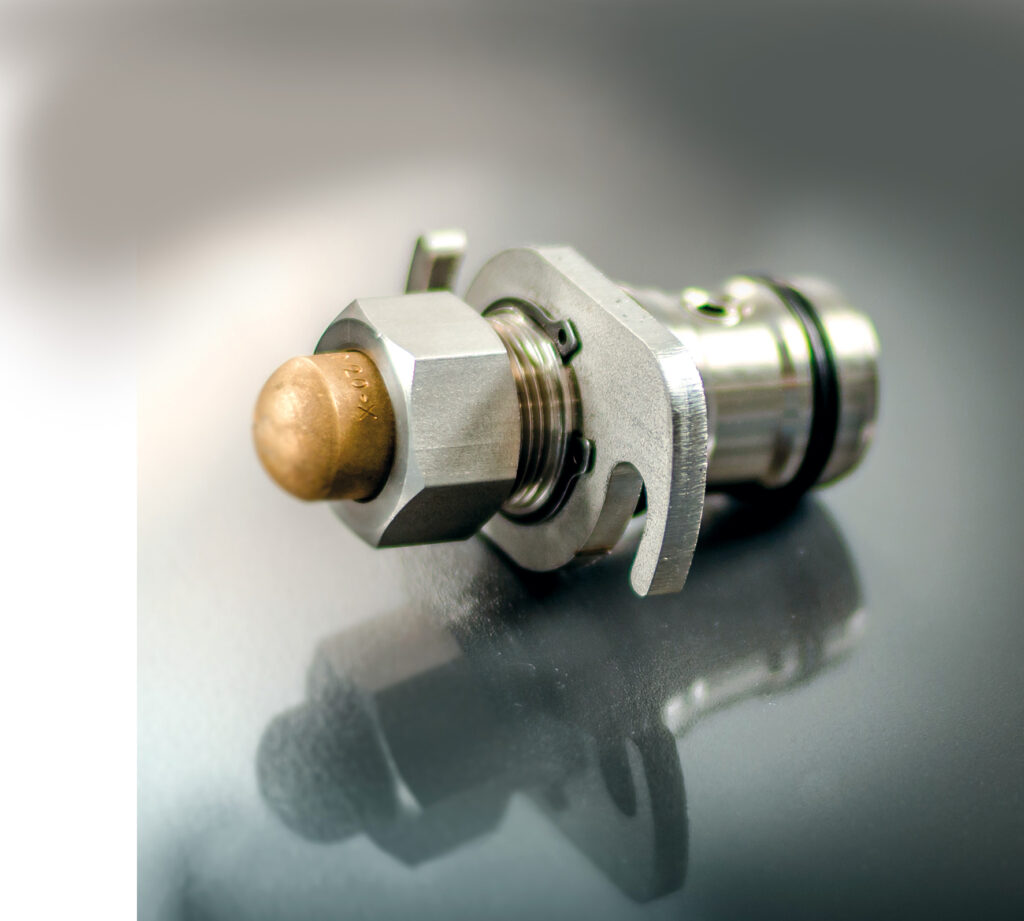
The MQL solution
Minimum Quantity Lubrication (MQL) represents an outstanding example of a new generation of advanced roll-gap lubrication systems for cold-rolling mills that has resulted from these efforts. The system applies pure rolling oil that is finely atomized with air directly onto the work-roll surfaces. This allows for an intelligent control of the oil-film thickness depending on the rolling process and product parameters. MQL not only ensures an optimum product-specific lubrication quantity, the rapid change of lubrication settings ensures a much higher degree of flexibility than had been previously possible with classical emulsion systems. Compared to conventional roll-gap lubrication with directly applied or recirculated emulsions – where the oil concentration inside the roll-bite is affected by plate-out and wash-off effects – MQL maximizes the level of oil concentration in the bite and therefore optimizes lubrication performance.
Designed for efficiency and robustness
The oil is applied through robust spray bars that comprise spray nozzles and oil/air mixing headers specifically designed for low flow rates (Figure 1). The new technology is the result of extensive development activities to optimize nozzle design and to identify optimum process parameters to ensure a uniform and homogeneous distribution of oil droplets onto roll surfaces. The system features the use of simple quick-change nozzles for minimized maintenance work. Customers benefit from this technology through energy savings that arise from reduced rolling forces and rolling torques; improved strip surface cleanliness; extended work-roll lifetime; enhanced reduction capability of their rolling facility; and the possibility to extend their product mix.
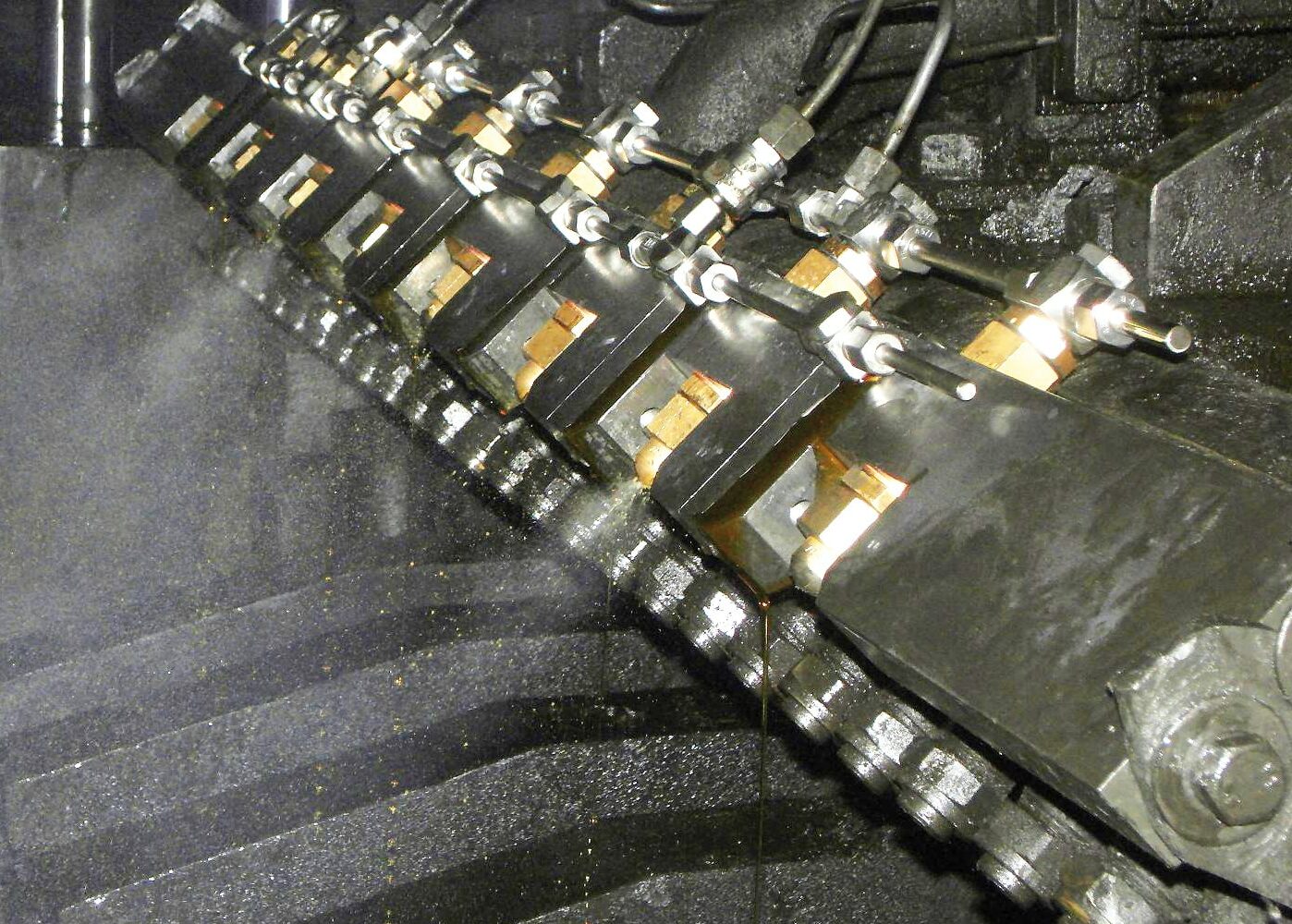
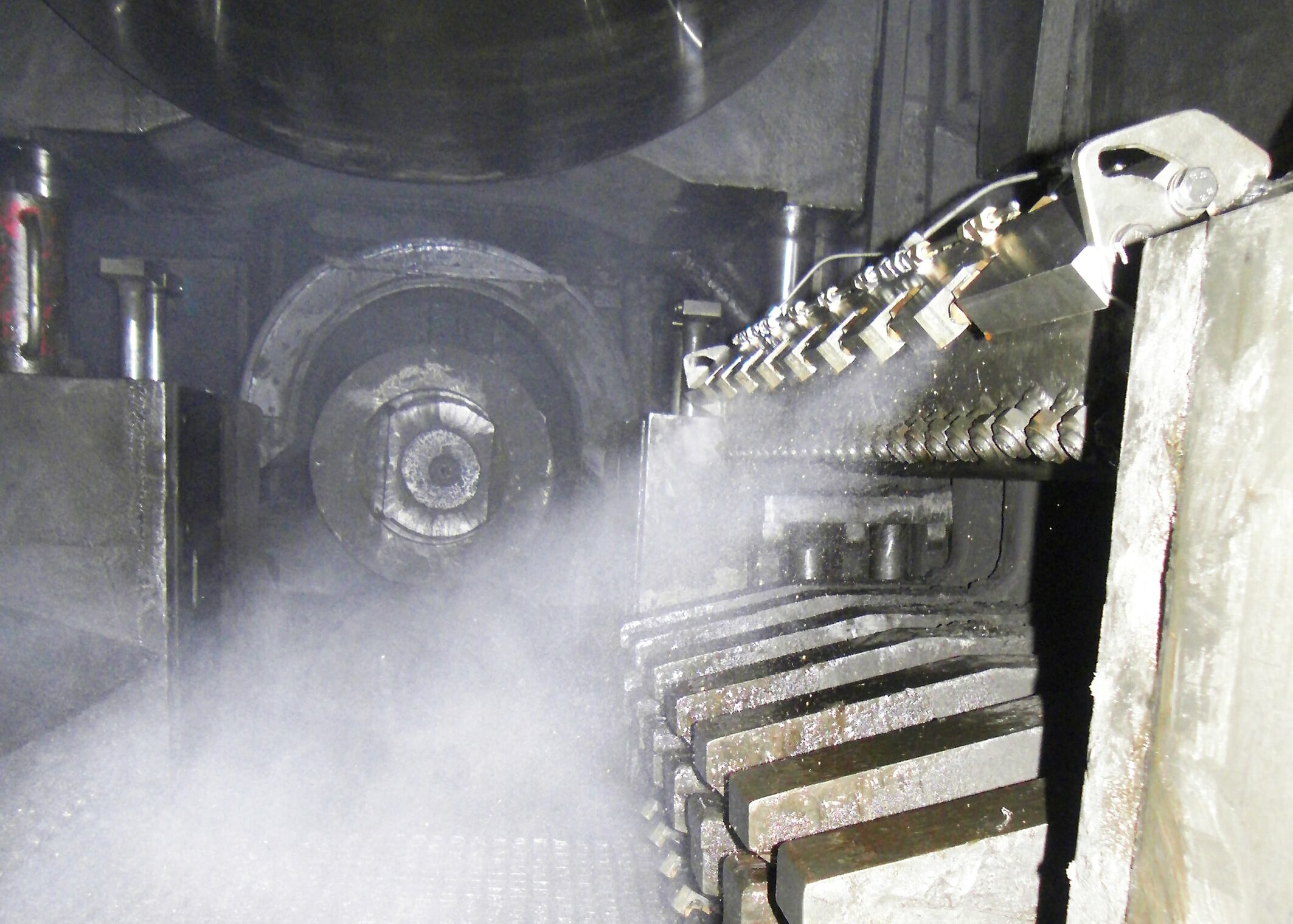
Prototype installation and results in cold-rolling mills
MQL was successfully installed and tested on two different industrial tandem cold-rolling mills in Europe (Figure 2). Both customers confirmed the industrial reliability and effectiveness of this new lubrication technology as demonstrated by significant improvements of strip surface cleanliness and roll-force reductions. In the first test series, more than 200 coils were successfully produced applying MQL instead of entry-side emulsion lubrication. In all cases, the observed rolling forces were lower with the use of MQL for the same steel grade and product dimensions. As expected, the rolling forces decreased with increasing oil application (Figure 3).
In subsequent test runs the influence of MQL on strip surface cleanliness was evaluated on the basis of the measured reflectivity from Scotch Tape tests (Figure 4). For these tests, MQL was applied only on stand 1 of a tandem cold-rolling mill. By improving the boundary lubrication in stand 1, the strip wear could be significantly reduced. This resulted in fewer iron fines on the strip surface and an improved average reflectivity of about ten percentage points.
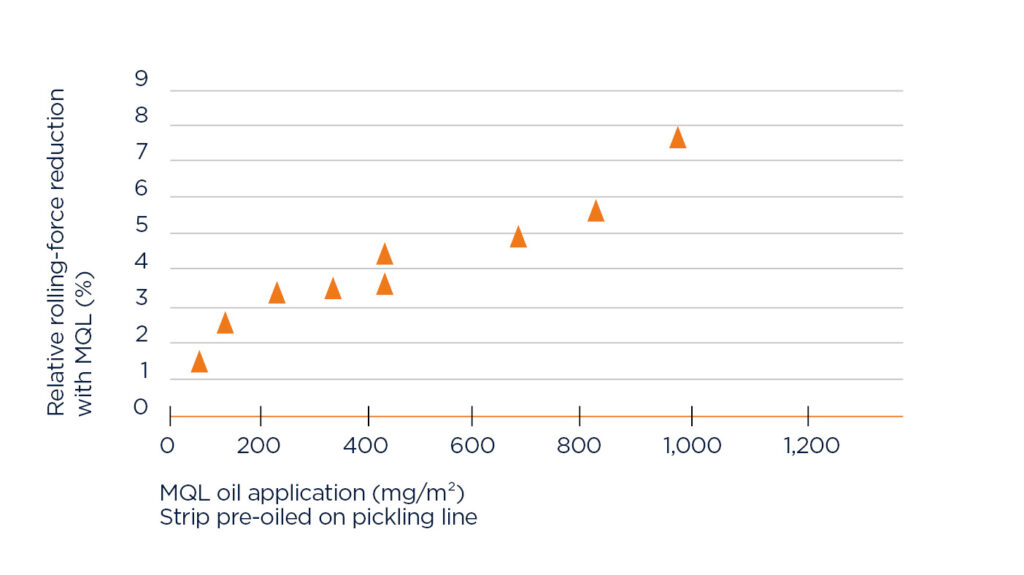
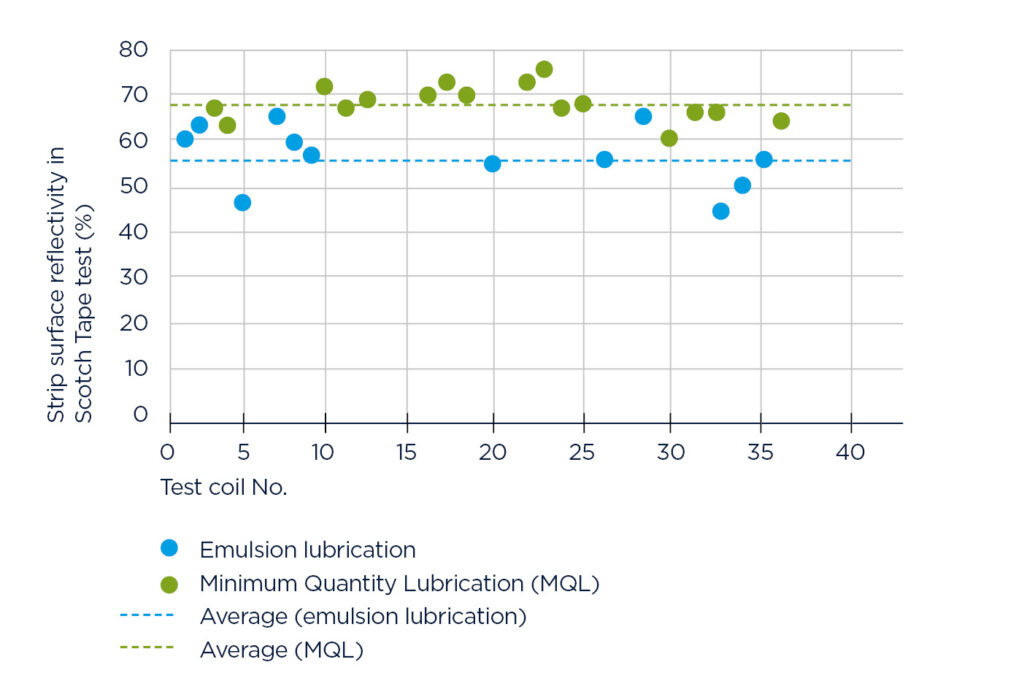
The MQL technology package
A pre-tested MQL technology package consisting of spray bars, an oil-supply unit and a process unit with a defined interface to the mill automation system is available to customers. The system can be easily installed on existing mills either as an additional lubrication system or to replace an existing roll-gap lubrication system. Performance tests have shown that the application of MQL extends plant capabilities, reduces opex (operational expenditures) and adds value to products.
A renowned European steel producer recently placed the first industrial order for the installation of MQL on the first two rolling stands of their tandem cold-rolling mill.
